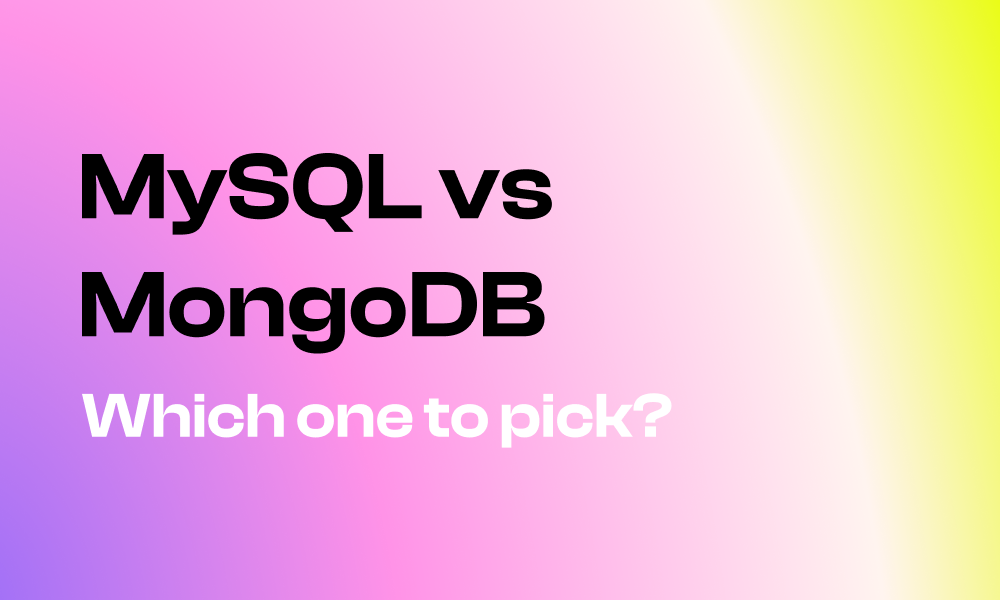
MySQL and MongoDB are both popular database management systems, but they are designed to handle different types of data and have different use cases.
MySQL is a relational database management system (RDBMS), which means it stores data in tables and uses structured query language (SQL) to access and manipulate the data. MySQL is well-suited for storing structured data that fits neatly into tables, such as customer information or product catalogs.
On the other hand, MongoDB is a document-oriented database management system (DBMS). It stores data in the form of "documents," which are essentially JSON-like objects that can have various structures. MongoDB is designed for storing large amounts of data that may have different structures, such as log data or real-time analytics data.
Which database should we use?
The choice of the database management system (DBMS) depends on the specific needs and requirements of your application or project. Here are a few factors to consider when deciding which database to use:
- Data Structure: If your data is highly structured and fits well into tables, a relational database management system (RDBMS) such as MySQL may be a good choice. If your data is more flexible and has varying structures, a document-oriented database management system (DBMS) like MongoDB may be more suitable.
- Scalability: Consider the size and growth of your data, as well as the resources you have available for managing the database. Some DBMS are better suited for handling large amounts of data, such as NoSQL databases like Cassandra or BigTable.
- Performance: Different DBMSs have different performance characteristics, so it's important to choose one that can handle the workload and meet the performance requirements of your application.
- Cost: Some DBMS are open-source and free to use, while others may require a license fee. Consider your budget and whether you are willing to pay for a commercial DBMS.
Ultimately, the best database for your application will depend on your specific needs and requirements. It may be helpful to do some research and experimentation to determine which DBMS is the best fit for your project.
Which performs better?
It is difficult to determine which database management system (DBMS) performs better in general, as performance can vary based on a wide range of factors. Some common factors that can affect the performance of a DBMS include:
- Data size and complexity: Larger and more complex datasets can take longer to process and may require more resources to query and manipulate.
- Hardware resources: The performance of a DBMS can be impacted by the hardware it is running on, such as the processor, memory, and storage.
- Indexing: Proper indexing can improve the performance of a DBMS by allowing it to quickly locate and retrieve data.
- Configuration: The way a DBMS is configured, including settings such as the buffer size and cache size, can impact its performance.
In general, it is important to choose a DBMS that is well-suited to the specific needs and requirements of your application or project. It may be helpful to do some testing and benchmarking to determine which DBMS performs best in your particular environment.
In summary, the main difference between MySQL and MongoDB is the way they store and structure data. MySQL is a traditional RDBMS that uses tables and SQL, while MongoDB is a document-oriented DBMS that uses JSON-like documents.
